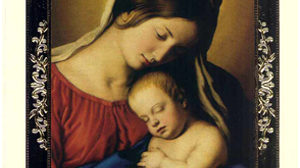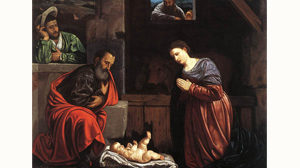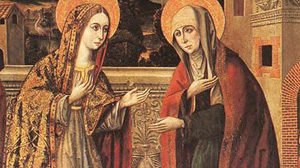Feast of the Holy Innocents
1 John 1:5-2:2
Matthew 2:13-18
Reflection:
Today is the Feast of the Holy Innocents. This feast can highlight for us the difference between the Christian celebration of Christmas and the secular celebration that most of us indulge in to some extent. Our secular Christmas is over, the paper has been torn from the gifts, most of the lovingly prepared food consumed, there is not a Christmas Carol to be heard in the stores or on the radio, the decorations have already begun to wither, in fact, where I live the day after Christmas, folks are already starting to take down their trees and the trees begin to line the streets for pick-up.
But in our churches, it is still Christmas. And as Christians, we remember that Christmas day is only one day in the Christmas season, and the Christmas story is only one chapter in the epic of salvation, and only one chapter in our liturgical year. So at Christmas we sing Glory to God in the highest…we give praise and celebrate, our Savior has come, but we remember that the cross is also part of the Nativity. The reason for the celebration is that we will be saved, and we remember that it is on the Cross that salvation happens.
The Church gives us a reminder with this Feast of the Holy Innocents that even in the midst of great rejoicing, there can be sorrow. For us, it is still the Christmas season, but we mourn this day. Most of us experience this in our lives. We know that all that happens to us is part of our life journey and part of God’s plan. Pain and sorrow walk with us just as do joy and hope.
These innocent baby boys that were slaughtered by Herod’s soldiers must indeed have a very special place in heaven. They died like all martyrs for Christ, but they also died IN PLACE of Christ. In Matthew, we read that Herod was so angry when he discovered that the Magi had deceived him that he had all the male babies killed. And the people mourned.
The Feast of the Holy Innocents is part of the liturgical Christmas season. It’s a good time to remember that for many today even in this season of rejoicing, there is pain and sorrow. Let’s temper our rejoicing. Let’s pray for our sisters and brothers who are suffering and let’s reach out where we can to alleviate that suffering. For we are Christians and for us the message of Christmas is not just about Christmas day.
Mary Lou Butler is a long-time friend and partner in ministry to the Passionists in California.








